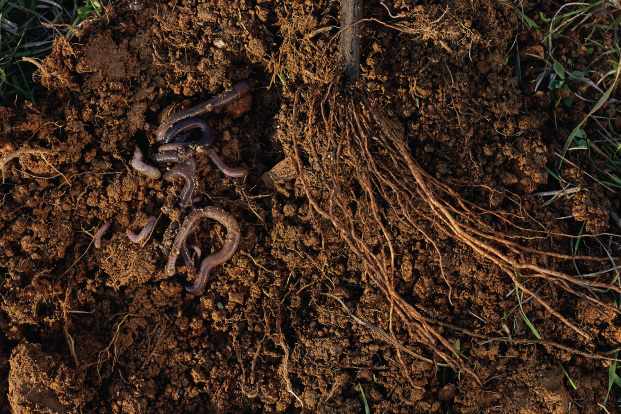Keep earthworms to improve soil quality

Financial planning is crucial to sustainable production
April 23, 2019
Summer crop estimate revised upwards
April 26, 2019
Earthworms play a crucial role in improving soil quality, and every farmer should try to maintain a healthy population of these remarkable creatures.
How earthworms help the farmer
Earthworms tunnel through the upper layers of soil in a constant search for food, and this improves soil structure.
The tunnels aerate the soil and help with water drainage, and the action of tunneling loosens the soil.
Earthworms also perform the following useful functions:
- They pull organic material down into the soil, which improves soil quality. In addition, nutrients in the organic material they consume are released for the plants to use.
- Earthworm casts give the soil an ideal, crumb-like texture. According to Charné Myburgh of the Agricultural Research Council’s Grain Crops Institute, studies have found that the casts contain more nitrogen, potassium, phosphorous, magnesium and calcium that is present in the surrounding soil.
- Earthworms help control nematode populations as well as pathogenic fungi in the soil, ingesting these together with the organic material. On the other hand, the earthworms’ presence stimulates microbial activity. “Good soil microbiology is very important as soil micro-organisms and enzymes regulate nutrient cycling,” says Myburgh.
The ideal habitat
Earthworm populations are dependent on the physical (temperature, moisture, aeration and texture) and chemical properties (pH) of the soil, as well as food availability.
Earthworms are less abundant in disturbed soils and are typically active only when enough moisture is present. Biological factors such as predators can also play a role in the success of an earthworm population, as a wide variety of animals, including rats, birds, moles, snakes, frogs, snails, toads, ants and beetles, feed on them.
The best habitat for earthworms is untilled soil, as this contains more plant residue, which earthworms feed on. Under tillage, the worms suffer and their benefits are greatly reduced.
In short, to increase the earthworm population, you need to reduce soil disturbance. Here are some other aspects to consider:
The best habitat for earthworms is untilled soil, as this contains more plant residue, which earthworms feed on. Under tillage, the worms suffer and their benefits are greatly reduced.
In short, to increase the earthworm population, you need to reduce soil disturbance.
Click here for the full article: farmersweekly.co.za



